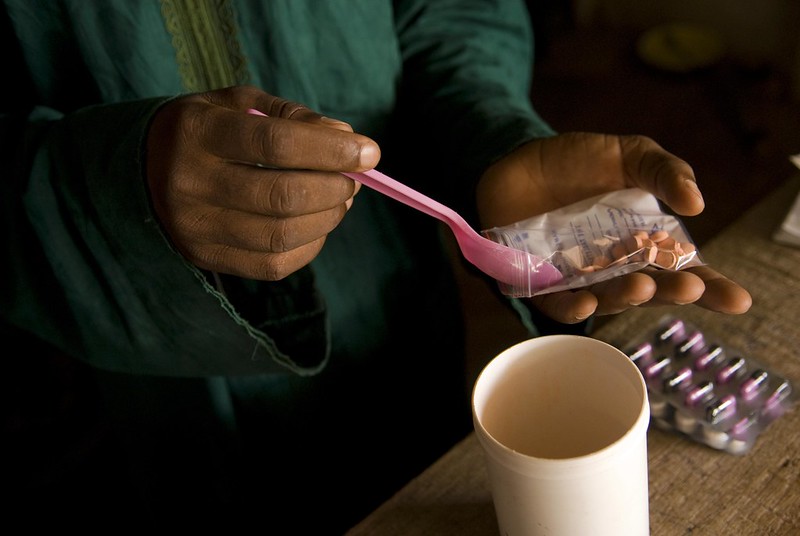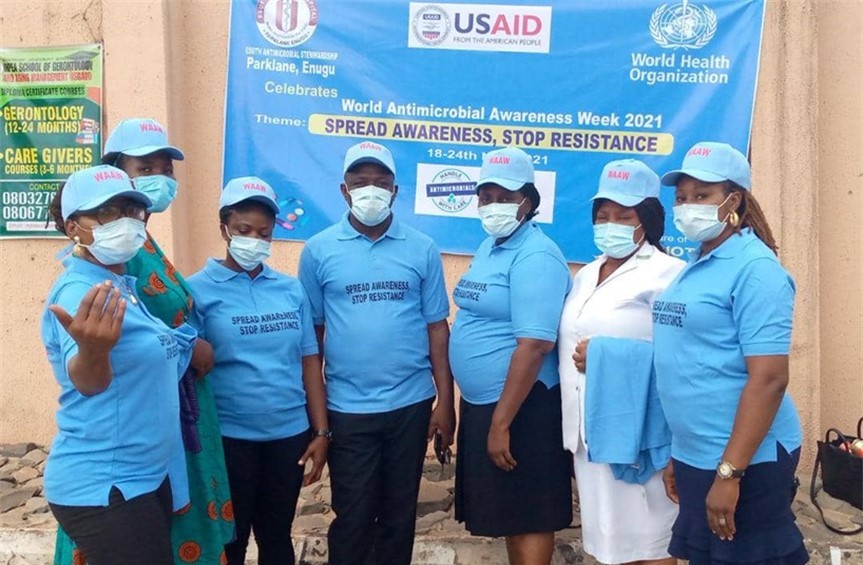Teaching Hospital in Enugu Takes Lead in Fighting Antibiotic Resistance
Teaching Hospital in Enugu Takes Lead in Fighting Antibiotic Resistance
By uniting doctors, nurses, pharmacists, and other health care experts, the hospital sets a precedent for responsible antibiotic stewardship across Nigeria’s health care landscape.

Antimicrobial resistance (AMR) is a growing threat worldwide, and Nigeria is no exception. With antibiotic misuse across health care settings, the country faces a challenge in combating the rise of drug-resistant infections that threaten patient safety and public health. In a proactive and strategic effort to turn the tide, Enugu State University Teaching Hospital (ESUTH) launched a comprehensive antimicrobial stewardship (AMS) initiative in partnership with MSH through the US Agency for International Development (USAID) Medicines, Technologies, and Pharmaceutical Services (MTaPS) Program. The initiative, aimed at reducing antibiotic misuse, has helped improve patient outcomes and set a new standard for health care in Nigeria.
A Collaborative Approach to Change
Through collaboration with USAID MTaPS from 2021 to 2024, ESUTH established robust guidelines for antibiotic prescriptions, trained staff, and created new protocols to guide treatment decisions and enhance patient safety. A dynamic, multidisciplinary team—including doctors, nurses, pharmacists, laboratory scientists, information technology specialists, infection prevention and control (IPC) experts, and cross-departmental administrative staff—joined to transform patient care through responsible antibiotic use.

“At ESUTH, our antimicrobial stewardship initiative is a team effort,” says Mrs. Chiagorom Nnenna Oghotuama, a laboratory scientist and the AMS committee secretary. “We collaborate closely to develop and implement tailored antimicrobial stewardship strategies that cater to the distinct needs and challenges of our hospital.”
Before the AMS program, the absence of clear protocols led to an overreliance on subjective clinical judgment when prescribing antibiotics, resulting in inconsistent and often inappropriate use of these vital medications.
MTaPS also collaborated closely with ESUTH to establish a management committee to oversee IPC, the work of the AMS team, implementation of the hospital’s improvement plan, and to ensure hospital-wide adoption of activities and interventions prioritized by the AMS team. Together, they identified key areas for enhancement and prioritized interventions based on available resources. This included creating a comprehensive AMS action plan, appointing a focal person, and training staff across various departments.
Our collaboration facilitated the establishment of robust governance structures to oversee and guide antimicrobial stewardship efforts and provided extensive training for staff, empowering them to make informed, evidence-based decisions regarding antibiotic prescriptions.
Adebayo Adebisi, MTaPS Country Project Director in Nigeria
Setting a New Standard for Care
Within months of implementing the AMS program, the impact was clear. Data from the newly developed antibiotics prescription chart showed significant improvements in AMS practices. The percentage of patients who received antibiotics with samples sent for culture and sensitivity tests increased from 24.5% to 68.5%, while the proportion of patients with documented laboratory requests on their folders rose from 53.6% to 75.8%. These changes have led to better health outcomes, including faster recoveries and fewer complications due to antibiotic resistance, and enhanced patient care within the facility. The new guidelines empowered health care workers to collaborate more effectively, ensuring that every antibiotic prescription was based on evidence and best practices rather than guesswork.
“We are proud to have supported ESUTH in significantly enhancing their approach to managing antimicrobial use,” says Adebayo Adebisi, MTaPS Country Project Director in Nigeria. “Our collaboration facilitated the establishment of robust governance structures to oversee and guide antimicrobial stewardship efforts and provided extensive training for staff, empowering them to make informed, evidence-based decisions regarding antibiotic prescriptions.”
ESUTH’s success is now being recognized as a model for hospitals across Nigeria. “This initiative is not only poised to deliver tangible benefits to ESUTH,” Adebisi continues, “but it also sets a new standard for health care in Nigeria, showing that with the right training, tools, and teamwork, we can effectively fight antibiotic resistance.”
A Model for National and Global Impact
With an estimated 1.27 million global deaths in 2019 due to AMR, ESUTH’s initiative highlights the crucial role of AMS in tackling the growing threat at a local level. “By adopting and implementing proactive measures that align with internationally recognized guidelines and best practices, ESUTH is enhancing its own health care delivery and setting a positive example for other institutions within Nigeria,” says Mrs. Oghotuama at ESUTH.
This forward-thinking approach is contributing to sustainable health care practices in Nigeria and supporting a worldwide movement toward more effective and responsible antibiotic use.